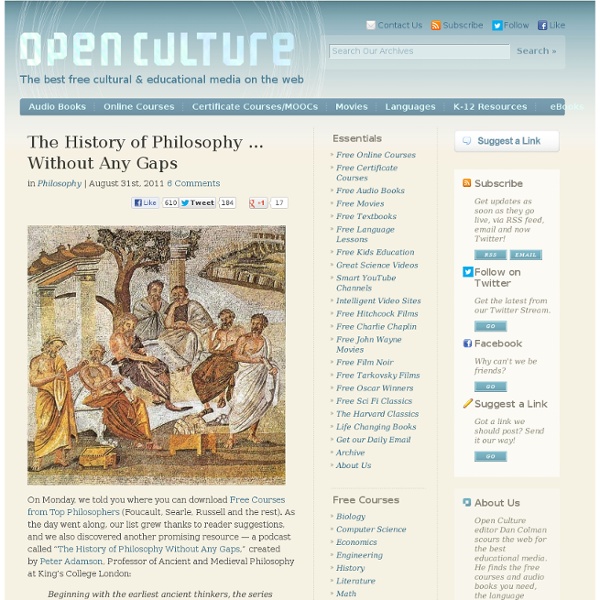The History of Philosophy … Without Any Gaps

Philosophy Talk: The Blog
Stanford Encyclopedia of Philosophy
Philosophy Forum (PCF) - Philosophy Chat & Forums for discussion and debate
Related:
Related:



